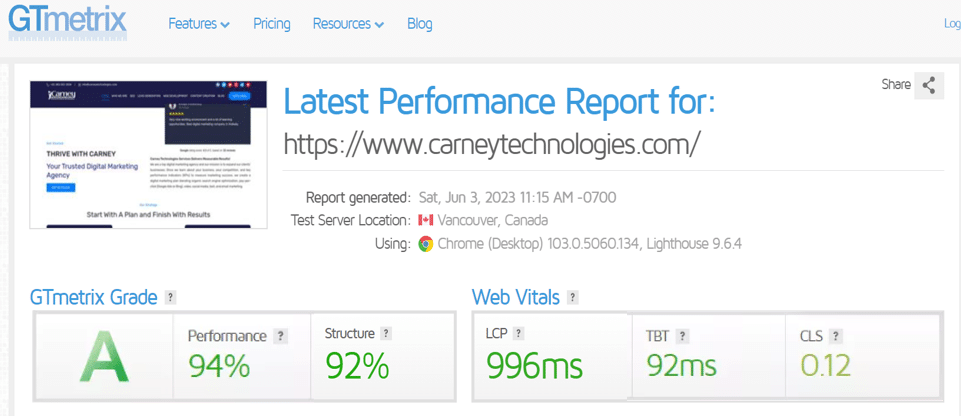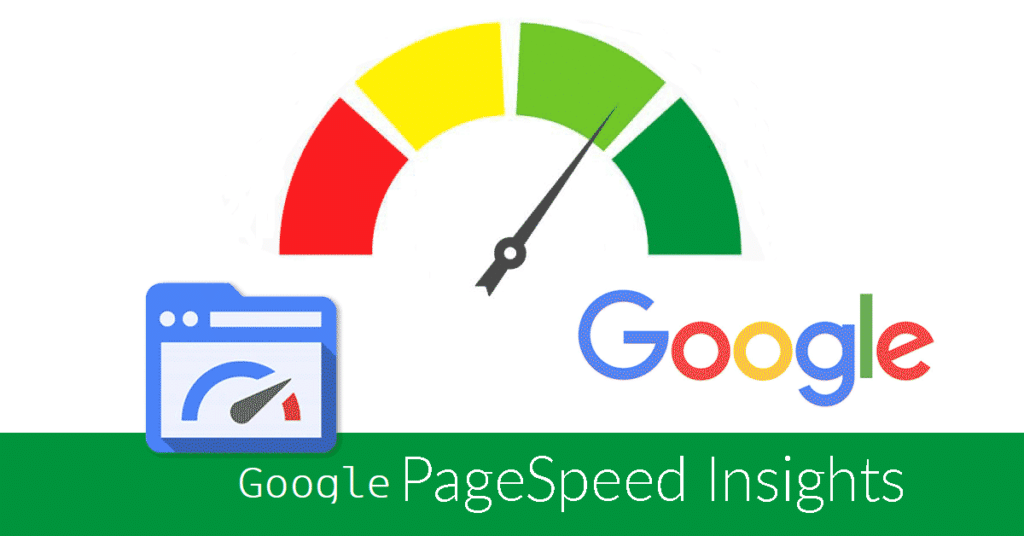Almost everything on your website is super important but the crown of importance goes to the page speed. In simple terms, page speed refers to how fast the content on any of the website pages loads.
There are two ways to describe page speed: “page load time” or “time to first byte.” The time it takes for a single page on your website to load completely is referred to as the page load time, but the time it takes for a browser to get the first byte of data from the web server is referred to as the time to byte time.
Here is a summary of the various components that make up a page speed measurement because there are several different techniques to compute page speed that an SEO agency in Kolkata uses.
Time to first byte (TTFB)
This is the time it takes for the very first byte of data on your website to load. It typically gives a decent idea of how quickly the server loads.
Time to Interactive (TTI)
TTI on the other hand calculates the time it takes for the page to load the interactive elements. People often check their website to calculate if the website is being slowed down by javascript.
Mobile first
Though technically not a page speed test, the mobile-first approach is a crucial component of the formula used to determine how quickly your website loads for an SEO agency in Kolkata. As a result, the tool evaluates the mobile version of your website rather than the desktop one when determining how quickly it loads.
First contentful paint (FCP)
The phrase sounds odd and it refers to the time that your website takes for the first element to load on your website.
Why is page speed time so Important?

Because speedier pages are more effective and offer a far better on-page user experience, people place a high value on page speed. Mobile users are always on the lookout for a quicker load time. When the survey happened, 73% of people said they have experienced a website that took a long time to load, and little did they know it affected the conversion rate big time.
Fast-loading sites have lower bounce rates and higher conversion rates
Short attention spans are common. They are growing shorter as internet speeds increase. Numerous studies have discovered a strong correlation between the length of time it takes for a page to load and the proportion of visitors who become impatient. For instance, Google’s investigation revealed the following:
- As page load time grows from one second to three seconds, the likelihood that a visitor would leave a page without interacting rises by 32%.
- As the time it takes a page to load climbs from one second to five, the likelihood that a visitor would leave without engaging rises to 90%.
Let’s discuss some of the plus sides of having a fast website page.
A quick page enhances the user experience.
Google is aware of how important page load speed is to the entire user experience. Friction is caused by having to wait for content to load, being unable to interact with a page, and even just being aware of delays. Friction detracts from your visitors’ experiences and costs time and money.
Google requires quick sites
Speed benefits Google just as much as it benefits consumers. Inefficient websites frequently take longer to load than fast ones. They might not have optimized their material, loaded too many huge files, or used outdated technology to deliver their content. That necessitates more bandwidth usage, resource allocation, and monetary expenditure on Google’s part.
Frustration hurts your users and website rankings
It’s not just Google – but researchers from all around the world and facts from all aspects of consumers show the importance of page speed and how it hampers SEO.
- It’s not a shock when 70% of consumers say page speed impacts their willingness to shop
- 50% of the consumers express they would give up animation and videos for a faster loading time.
It might sound sad but it’s true, that this cost and site abandonment happens because users just hate being frustrated in the middle of their browsing and buying session.
Improved page speed helps to improve crawling for search engines
Modern websites are lengthy and untangling, it can create a mess that can be a big change. The bigger your website size, the more time it will consume for loading. You will have to work on speed optimization because now you know how it impacts user experience and affects conversion rates. That’s not it, page speed also affects crawl budget and crawl rate.
Page speed is a ranking factor in itself
A quick site helps you rank higher, according to Google’s frequent statements. It thus comes as no surprise that since 2010, Google has been analyzing your site’s speed and including it in their ranking algorithms.
Page speed is now a ranking criteria for mobile searches according to Google’s ‘Speed Update,’ which was introduced in 2018. Google emphasized that it will only harm the slowest websites and that making fast websites quicker won’t help them, although they are monitoring website performance overall.
Google mobile-first index
The fact that Google prioritizes indexing information for mobile devices adds further importance to page speed for ranking. This implies that Google indexes and ranks your pages using their mobile version. This strategy makes sense given how frequently we use the internet on our mobile devices. According to a recent study by Semrush, mobile devices account for 66% of all website views.
Site Speed Statistics

People might be a little patient with their mobile devices, but the statistics change when it’s to desktops.
- The average loading time for a website on a Desktop is 2.5 seconds, and 8.6 seconds on Mobile based on the analysis of the top 100 web pages worldwide.
- The average mobile web page takes 15.3 seconds to load
- On average, webpages on mobile take about 70.9% longer as compared to desktop
Factors that affect your page speed and SEO
Let’s get into the factors that affect your page’s loading speed and time. We are sure you already know some of them and we would like to jog your memory. Some of these factors are a serious threat to the ranking of your website. Factors that influence your page speed include:
Web page design
Layouts, fonts, and color schemes are all under the control of the themes for your website. The creation of themes varies, though. Different themes have different levels of cleanliness and optimization. They load more quickly since they have a reduced file size. Additionally, they are less glitzy than those who are a little extra, such as those with animation or specialized design patterns.
Your web hosting service
Because hosting services supply the server on which your website is hosted, they are essential to its functionality. The effectiveness of your website is thus strongly impacted by its server performance. Your host’s performance is influenced by a variety of variables, including server setups, facilities, uptime, and server-running machine specs.
Enormous file size
Here, we’re discussing a variety of file kinds, including JavaScript in particular as well as HTML and CSS. Any bytes and kilobytes you may cut from these files will influence how quickly your website loads. Modern websites also make extensive use of JavaScript to make them dynamic. It enables the bright, hip animations and transitions you see on modern web pages.
There are too many plugins and widgets
You surely use plugins and widgets to add functionality to your site if you operate it on the WordPress platform. WordPress is a very strong platform because of its plugins. However, employing too many plugins is paradoxical since they make your website load more slowly.
Images and videos
A slow-loading page is usually the result of large pictures. They contribute significantly to the size (in kilobytes or megabytes) of your page. Your page may get a poor LCP score in Core Web Vitals if it features a huge, inefficient header picture.
Optimization of a page is more than looking at statistics
After a lengthy script on page speed, you must have some idea about how powerful it is to help your page in ranking. It doesn’t just help in page speed but also helps with sales, customer retention, and brand loyalty in addition to SEO. The only way to improve the page speed is by creating and publishing quality content. It’s important to use Core Web Vitals’ requirements.
It’s crucial to remember that optimizing your site’s page performance calls for more than just passing all those speed tests. Because they don’t truly represent all of your visitors, try not to get too obsessed with ratings and statistics. Each user is distinct. Every visitor uses a unique internet connection, device, and browser. Focus on improving your website speed like a reliable digital marketing agency in Kolkata.



